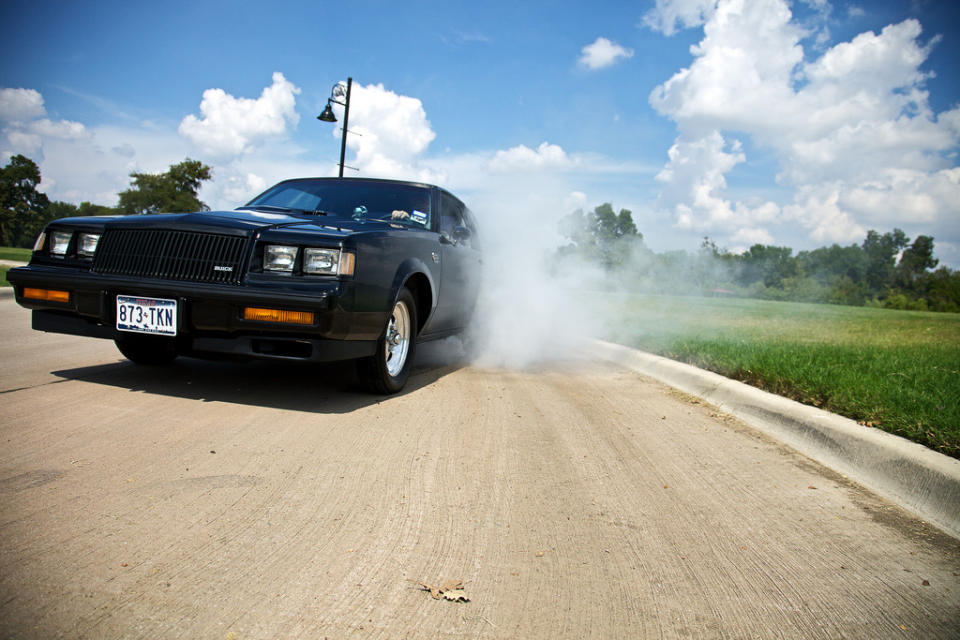Question Of The Day: Why Did 1980s Cars Have 85-MPH Speedometers?

Question: Why did so many muscle cars in the 1980’s have speedometer that maxed out at 85 mph?
Answer: It wasn’t just muscle cars that had speedometers that could only go to 85 mph. Every vehicle manufactured and sold in the United States during the 1980s had a speed cap. No matter the car, the needle on the speedometer couldn’t be pegged any further right than 85 mph.
The reason for this had very little to do with speed, and everything to do with energy conservation, sparked by a shortage of oil in the 1970s.
In 1973, the Organization of Arab Petroleum Exporting Countries – OAPEC (every Arab member nation of the Organization of Petroleum Exporting Countries, or OPEC, plus Egypt and Syria) – began an oil embargo on every nation that supported Israel during the Yom Kippur War in October that year. One of those nations on the list was the United States. Fuel rationing, high fuel prices, energy conservation, and the search for alternative energy sources were some of the results of the oil embargo the following year.
Energy conservation, in particular, led to a few legislative actions which would affect the country, one of which was the 1974 Emergency Highway Energy Conservation Act. The act had a provision dubbed the National Maximum Speed Law (NMSL), which did away with speed limits set by state governments, replacing them with a national 55 mph limit. Before this legisation, speed limits were as high as 75 mph, with Montana and Nevada not having posted limits on rural roads.
The intent of NMSL was to conserve fuel use, based partly upon the belief being cars and trucks achieved their greatest fuel efficiencies between 40 and 55 mph. But its impact was minimal: Fuel consumption during the time the speed cap was in place fell just 0.2 percent and 1 percent, according to the U.S. Transportation Research Board.
The 55-mph speed limit was not the most popular, to say the least. Most people drove faster, a handful of movies made fun of the practice, a few real-life road rallies defied the law, and even the Red Rocker himself, Sammy Hagar, penned an anthem to voice every American’s displeasure with driving 55 mph.
As for the 85-mph speedometer, that came into being through another piece of legislation a few years later. On Sept. 1, 1979, the National Highway Traffic Safety Administration added a provision into a regulation focusing on speedometer accuracy to place an emphasis on the 55-mph mark, and for a maximum speed reading of 85 mph. Though the 85-mph mandate only lasted until the first months of President Ronald Reagan’s first term in the White House in 1981, most manufacturers kept the reading at the bottom right of their speedometers until the vehicles were redesigned years later.
These days, with the 55-mph limit relegated to the winds of history, high maximum speedometer readings are the norm, and are often a selling point to those who love the allure of speed. For even if the Toyota Prius can only do 112 mph on a good day while going downhill in hybrid mode, its digital speedometer can count to 199 mph.
As for the original question, which asked about muscle cars and the 1980s, car nuts might laugh over that wording, snarking that there weren’t any muscle cars in that era. But there were muscle cars in the 1980s. They weren’t GTOs, Torinos, or Barracudas, and some didn’t have a V8 powering the rear wheels, but what was available during the Reagan-Bush era more than made up for the darkest days of the Malaise Era of the 1970s. The Buick Grand National and GNX, as well as the Ford Mustang SVO, Thunderbird TC and Taurus SHO, proved one didn’t need so many cylinders to destroy the dragstrip. Meanwhile, the Chevrolet Camaro, Pontiac Firebird/Trans Am, and Ford Mustang 5.0 kept the pony car wars alive under the neon lights of the decade. And, of course, the partnership of Dodge and Carroll Shelby gave us the likes of the Omni GLH/GLHS and the Shelby Charger.

Buick GNX (Photo: Travis Isaacs | Flickr)
We’re scouring the Internet to uncover interesting questions that people have posted looking for advice from the unwashed masses. We will contact experts to give you well-researched, professional advice. You can also submit questions to autos_qotd@yahoo.com.

 Yahoo Autos
Yahoo Autos 